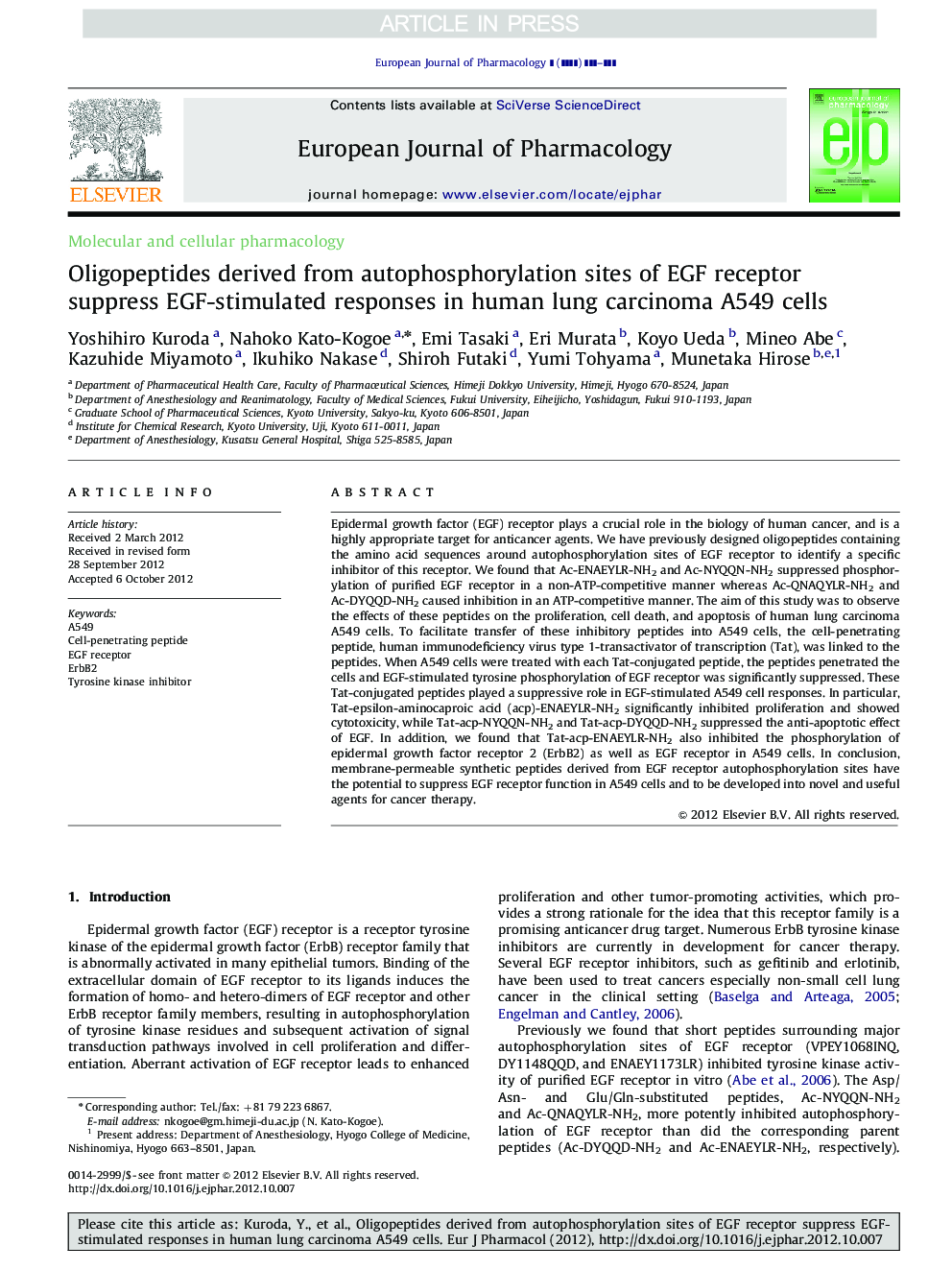| Article ID | Journal | Published Year | Pages | File Type |
|---|---|---|---|---|
| 5828915 | European Journal of Pharmacology | 2013 | 8 Pages |
Abstract
Epidermal growth factor (EGF) receptor plays a crucial role in the biology of human cancer, and is a highly appropriate target for anticancer agents. We have previously designed oligopeptides containing the amino acid sequences around autophosphorylation sites of EGF receptor to identify a specific inhibitor of this receptor. We found that Ac-ENAEYLR-NH2 and Ac-NYQQN-NH2 suppressed phosphorylation of purified EGF receptor in a non-ATP-competitive manner whereas Ac-QNAQYLR-NH2 and Ac-DYQQD-NH2 caused inhibition in an ATP-competitive manner. The aim of this study was to observe the effects of these peptides on the proliferation, cell death, and apoptosis of human lung carcinoma A549 cells. To facilitate transfer of these inhibitory peptides into A549 cells, the cell-penetrating peptide, human immunodeficiency virus type 1-transactivator of transcription (Tat), was linked to the peptides. When A549 cells were treated with each Tat-conjugated peptide, the peptides penetrated the cells and EGF-stimulated tyrosine phosphorylation of EGF receptor was significantly suppressed. These Tat-conjugated peptides played a suppressive role in EGF-stimulated A549 cell responses. In particular, Tat-epsilon-aminocaproic acid (acp)-ENAEYLR-NH2 significantly inhibited proliferation and showed cytotoxicity, while Tat-acp-NYQQN-NH2 and Tat-acp-DYQQD-NH2 suppressed the anti-apoptotic effect of EGF. In addition, we found that Tat-acp-ENAEYLR-NH2 also inhibited the phosphorylation of epidermal growth factor receptor 2 (ErbB2) as well as EGF receptor in A549 cells. In conclusion, membrane-permeable synthetic peptides derived from EGF receptor autophosphorylation sites have the potential to suppress EGF receptor function in A549 cells and to be developed into novel and useful agents for cancer therapy.
Related Topics
Life Sciences
Neuroscience
Cellular and Molecular Neuroscience
Authors
Yoshihiro Kuroda, Nahoko Kato-Kogoe, Emi Tasaki, Eri Murata, Koyo Ueda, Mineo Abe, Kazuhide Miyamoto, Ikuhiko Nakase, Shiroh Futaki, Yumi Tohyama, Munetaka Hirose,
